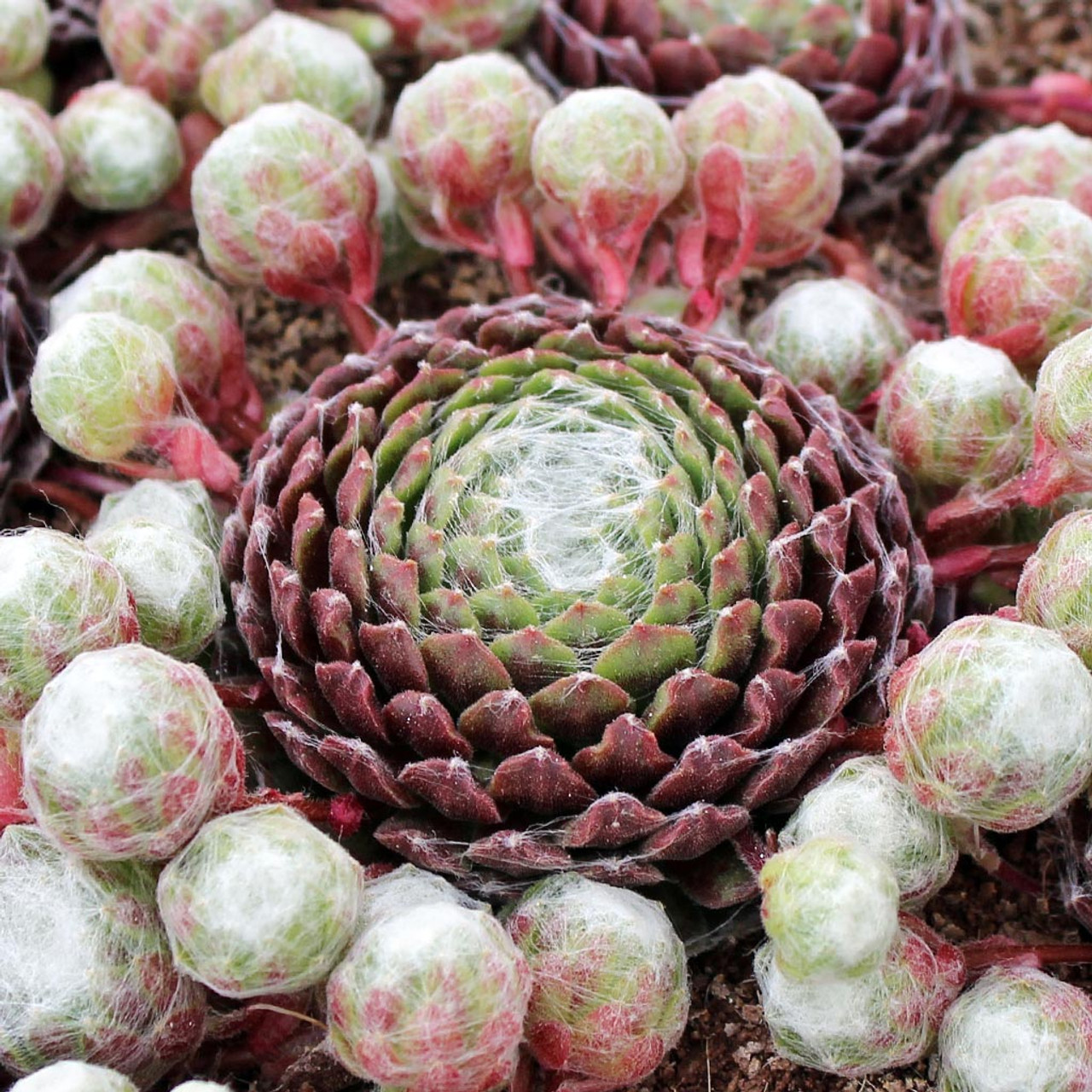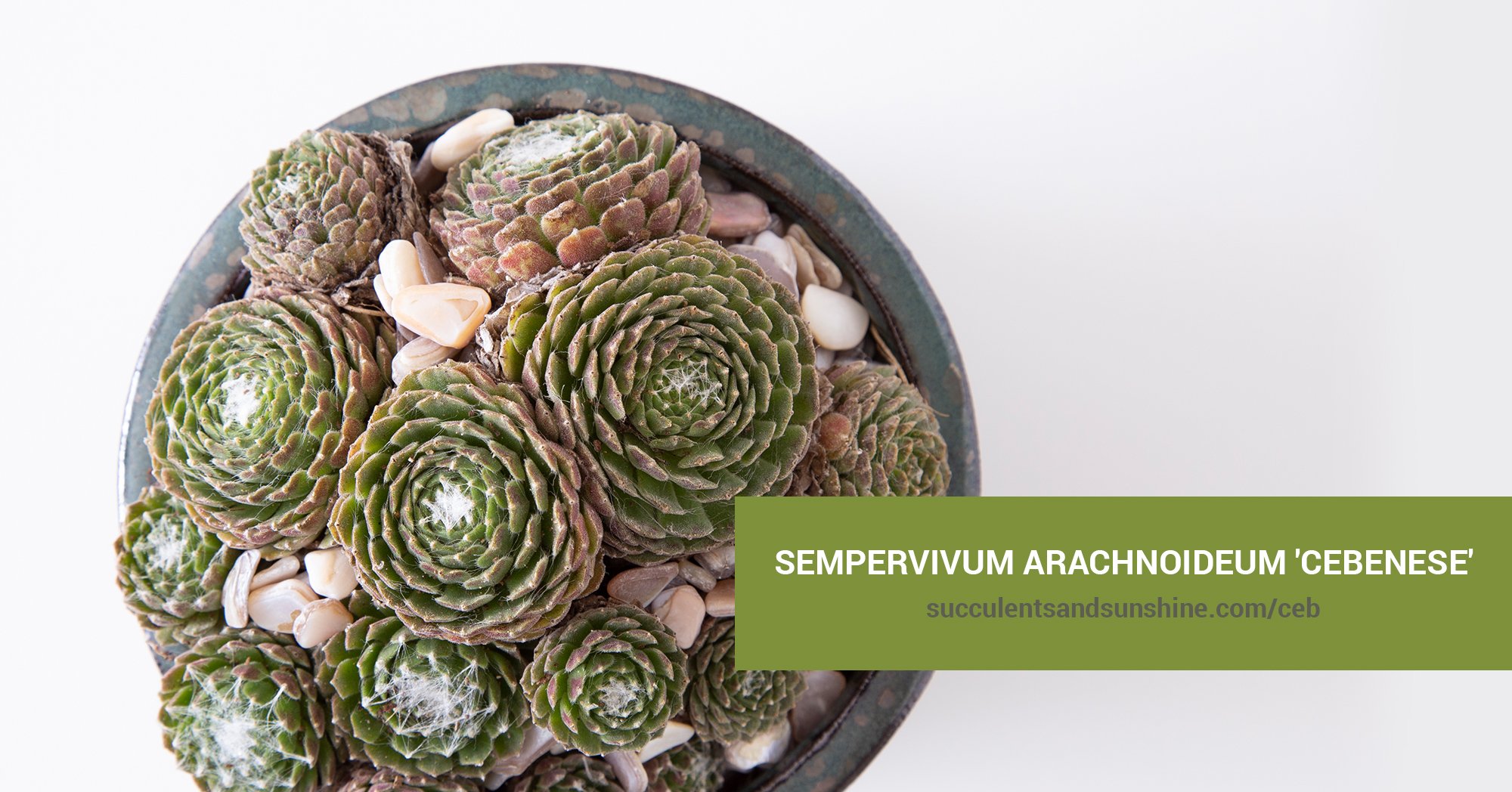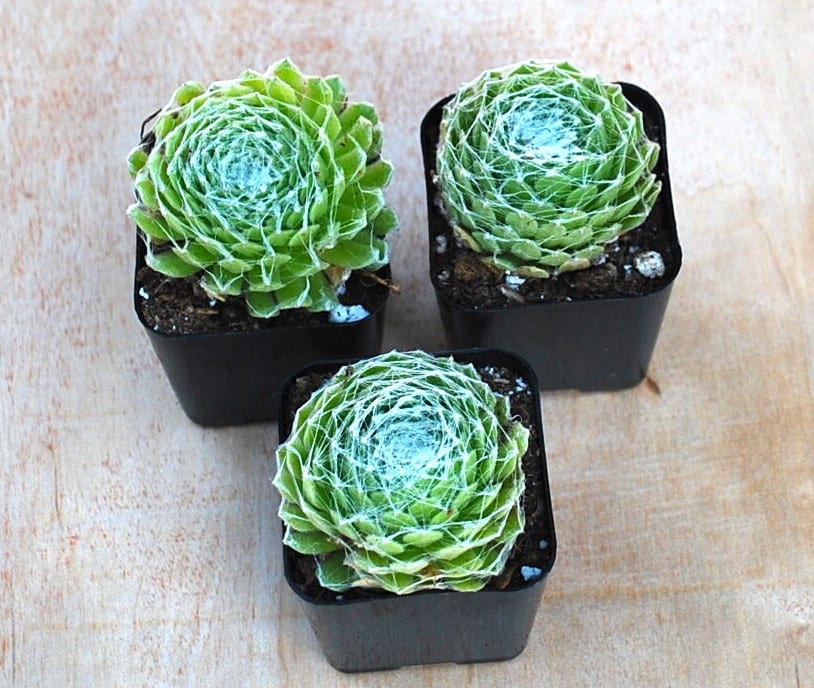‘Cebenese’ is an ideal plant for colder climates, as it can survive being buried under snow and still thrive outdoors. The plant has a webbed rosette and pink edges, and will produce many “chicks” before it dies, since it is a monocarpic species.
Table of Contents
Care and Propagation Information
Cebenese is a resilient succulent with lacy rosettes that can survive in cold temperatures. It is an excellent choice for vertical wall gardens, like the Grow Vert planter.
Watering
Sempervivum arachnoideum ‘Cebenese’ needs to be watered in a particular way to stay healthy. It’s best to water the plant thoroughly and then allow the soil to dry out completely before watering it again. This is known as the “soak and dry” method and is typical for succulents.
Where to Plant
Cebenese is a cold-weather tolerant plant that thrives when planted outdoors. It should be placed in a spot which receives anywhere between full sun and partial sun, ideally 6 hours of sunlight each day. It can also be used in rock walls, vertical gardens, and planters.
How to Propagate Sempervivum arachnoideum ‘Cebenese’
It is simple to propagate Sempervivum arachnoideum ‘Cebenese’ from its offsets. The “hen” (mother plant) will generate a large amount of “chicks” (offsets) which can be separated from the mother plant and planted in containers or used to create decorative displays.
Offsets
Cebenese plants will grow small rosettes that can be cut off from the main stem using a clean, sharp knife or scissors. Let the offsets dry for 24 to 48 hours before placing them in a pot with good drainage.
Practical uses
Sempervivum arachnoideum ‘Cebenese’ is an excellent choice for a “living roof.”
Interesting history
It was believed that the presence of “Cobweb Houseleek” would ward off lightning and witches from a residence.
Care and Propagation Information
General Care for Sempervivum arachnoideum ‘Cebenese’
Watering
Sempervivum arachnoideum ‘Cebenese’ needs to be watered in a particular way to stay healthy. It’s best to water the plant thoroughly and then allow the soil to dry out completely before watering it again. This is known as the “soak and dry” method and is typical for succulents.
Where to Plant
Cebenese is a cold-weather tolerant plant that thrives when planted outdoors. It should be placed in a spot which receives anywhere between full sun and partial sun, ideally 6 hours of sunlight each day. It can also be used in rock walls, vertical gardens, and planters.
How to Propagate Sempervivum arachnoideum ‘Cebenese’
It is simple to propagate Sempervivum arachnoideum ‘Cebenese’ from its offsets. The “hen” (mother plant) will generate a large amount of “chicks” (offsets) which can be separated from the mother plant and planted in containers or used to create decorative displays.
Offsets
Cebenese plants will grow small rosettes that can be cut off from the main stem using a clean, sharp knife or scissors. Let the offsets dry for 24 to 48 hours before placing them in a pot with good drainage.
Practical uses
Sempervivum arachnoideum ‘Cebenese’ is an excellent choice for a “living roof.”
Interesting history
It was believed that the presence of “Cobweb Houseleek” would ward off lightning and witches from a residence.
FAQ
How much sun does a Sempervivum need?
Three to four hours per day.
Can Sempervivum take direct sunlight?
Sempervivum will look its most vibrant if it is planted in an area that gets 6 or more hours of direct sunlight daily. Although it can tolerate partial sun, if the climate is especially hot and dry, it may be best to offer the plant some shade in the afternoon to avoid sunburn on its leaves.
How do you care for Sempervivum Cebenese?
It’s important to let the soil dry out between waterings in order to prevent root rot.
How do you propagate Sempervivum arachnoideum?
These offsets are genetically identical to the mother plant, as they are clones, allowing for easy propagation of the Sempervivum arachnoideum ‘Cebenese’ cultivar.
Does Sempervivum arachnoideum like sun or shade?
These plants can do well in either full sun or partial shade, with a spread of two feet in diameter. They require well-draining soil and regular irrigation.



